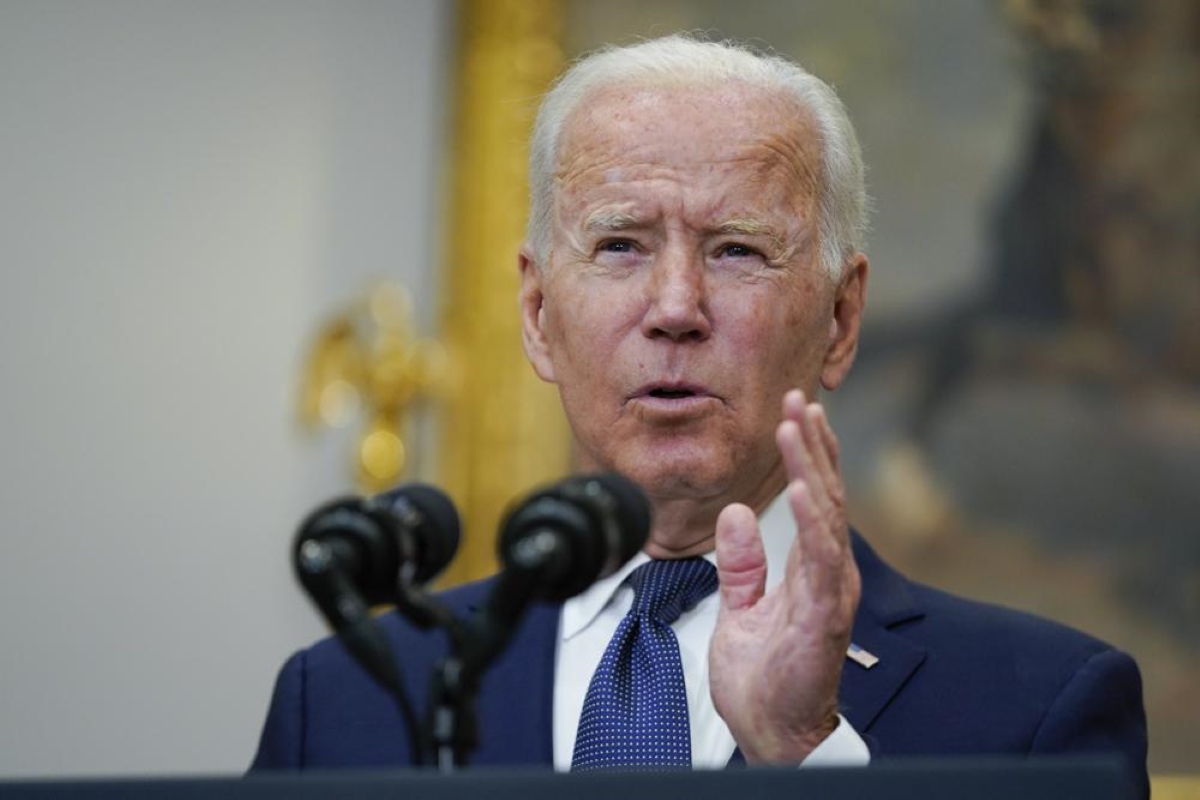IAF airlifts over 700 students to Leh
Three sorties of IL-76 aircrafts were conducted to fly these persons to Leh.
“We have constantly, how can I say it, increased rational access to the airport, where more folk can get there more safely. It’s still a dangerous operation but I don’t want to go into the detail of how we’re doing that,” said Biden

President Joe Biden speaks about Hurricane Henri and Afghanistan evacuations in the Roosevelt Room of the White House.
President Joe Biden says the “hard and painful” airlift of Americans and tens of thousands of others from Afghanistan’s capital is accelerating, but he would not rule out extending it beyond the 31 August deadline he set before the Taliban’s swift takeover.
“It would have been true if we’d started a month ago, or a month from now. There is no way to evacuate this many people without pain and loss of heartbreaking images you see on television.”
Biden said military discussions are underway on potentially extending the airlift beyond Biden’s 31 August deadline. “Our hope is we will not have to extend, but there are discussions,” he said, suggesting the possibility that the Taliban will be consulted.
Advertisement
Biden, a day after the Taliban takeover, had defended his decision as critics have blasted him for a grave error in judgment.
In a statement later Sunday, a White House official said eight U.S. military flights — seven C-17s and one C-130 — evacuated about 1,700 passengers from Hamid Karzai International Airport in a 12-hour period ending at 3 p.m. EDT. In addition, 39 coalition aircraft took off with approximately 3,400 passengers, the official said.
Since 14 August, the US has evacuated and facilitated the evacuation of about 30,300 people on military and coalition flights, the official said.
Tens of thousands of people remain to join the airlift, which has been slowed by security issues and U.S. bureaucracy hurdles.
“We see no reason why this tempo will not be kept up,” he said. The U.S. military says it has the capacity to fly 5,000 to 9,000 people out of Kabul per day.
Biden asserted, without a full explanation, that U.S. forces have managed to improve access to the airport for Americans and others seeking to get on flights. He suggested that the perimeter had been extended, widening a “safe zone.”
“What I’m not going to do is talk about the tactical changes we’re making to make sure we maintain as much security as we can,” he said. “We have constantly, how can I say it, increased rational access to the airport, where more folk can get there more safely. It’s still a dangerous operation but I don’t want to go into the detail of how we’re doing that.”
Later Biden added: “We’ve discussed a lot with the Taliban. They’ve been cooperative in extending some of the perimeter.”
“Any American who wants to get home, will get home,” he asserted.
Biden and his top aides have repeatedly cited their concern that extremist groups in Afghanistan will attempt to exploit the chaos around the Kabul airport.
“The threat is real, it is acute, it is persistent and something we’re focused with every tool in our arsenal,” said Biden’s national security adviser, Jake Sullivan.
A central problem in the evacuation operation is processing evacuees once they reach other countries in the region and in Europe. Those temporary waystations, including in Qatar, Bahrain and Germany, are sometimes reaching capacity, although new sites are being made available, including in Spain.
In an attempt to alleviate that, and to free up military aircraft for missions from Kabul, the Pentagon on Sunday activated the Civil Reserve Air Fleet.
Advertisement